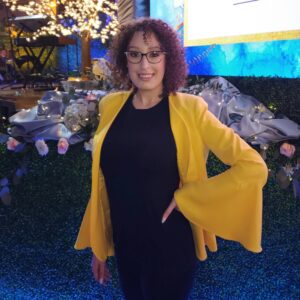Coping | Daily Life | IBD


I am riding the world’s most terrifying rollercoaster. I have no clue how it was given approval to run. The restraints are suspicious at best. It runs so fast I can’t breathe but then brakes, throws me forward, and continues at a glacial pace before running forward again, somehow even faster than last time. It climbs, up and up and up, with no end in sight. It crests a hill and just pauses, and I can’t see what’s ahead. Then it plummets straight down, but by this point I’m so burnt out I don’t think I can feel it anymore.
Lately, I find myself wondering how the heck am I supposed to be an adult and live my life with Crohn’s disease? And the only answer I can come up with is that I have No Freaking Clue!
I want a life. I want goals. I want some semblance of what most people my age are supposed to have. But the reality is that most people my age have not been living with Crohn’s disease since they were 10. Most people don’t live with debilitating pain, chronic symptoms, a mile-long list of medical issues , or multiple medications. Most people my age don’t juggle managing specialists who are getting harder and harder to get appointments with even though my condition only becomes increasingly urgent. .
The biggest issue I see is the desire to live a productive adult life while simultaneously knowing that our illnesses will likely always come first. I’m okay with that. In order for me to live my life, I have to make sure my Crohn’s disease is controlled to the greatest extent possible. I have to take my meds, see my doctors, and go through all the follow-up procedures. Even when I don’t want to. Even when the scar tissue builds up from surgeries and IVs. Even when the fear becomes increasingly debilitating. Even when I’ve had too many traumatizing experiences with the medical system and way too few positive experiences in comparison.
But how? How can anyone move forward despite everything?
One of the most important things I think we need to help us move forward is mental health support. Carrying the mental load that being an adult requires is hard. Carrying that plus trying to take care of at least ourselves and anyone else we are responsible for makes it seem impossible at times. We deserve ongoing, stable mental health support that helps us develop coping skills to make it through the most trying moments.
We also deserve to have our voices heard and our concerns addressed by doctors. It’s hard. While I’ve been lucky to have a few who care and listen, most doctors I’ve dealt with have not taken the time to understand my viewpoint. So, we must advocate for ourselves. We must insist that the medical system includes us in our care. What a novel idea! But one that won’t happen unless we demand it.
Most of all, I have learned that it is important to acknowledge that sometimes my life will revolve around my illness. I always hated it when I was a child and adults tried to convince me that I did not need anything different than other kids. Because I did. And I still do. I need accommodations. I need to do things differently. I cannot move far away from my medical team in case something happens. I cannot travel anywhere I want because I need to know that I have medical care available to me in an emergency.
But I can find a way forward.
No one except a fellow Girl With Guts understands what it’s like to live this way. To simultaneously be grateful for improvement in symptoms while also feeling the clock count down to the unknown next flare. That’s why I am so grateful for this community. That’s why I am so grateful for you. We can’t do it alone. That’s why we need each other. But we absolutely can do it.

Karen Shalev is an educator, creator, and dreamer. A lifelong “professional patient,” Karen understands firsthand the demands those living with IBD struggle with and dedicates herself to disability advocacy. During her undergraduate career, Karen earned recognition for her work through the Abbvie Immunology Scholarship and the Delta Alpha Pi Scholarship. Karen is currently completing her Master of Science in Communication.
